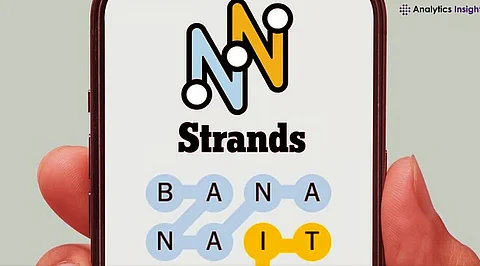

The June 1 NYT Strands puzzle features a courtroom theme with the spangram “Your Honor” and legal terms like alibi and objection.
Solving requires strategy, not guessing, with each letter playing a key role.
Bonus hints unlock with unrelated 4-letter words.
Each morning opens with a fresh challenge from the puzzle vaults of The New York Times, and today’s edition of NYT Strands sets the tone with courtroom drama. Welcome to puzzle #455—where codes of justice guide every move. June 1 welcomes a new grid, a new theme, and a smart stretch of the imagination.
This isn’t a simple search-and-match game. Strands flips the old-school word hunt into something cleverer. Hidden in this 6x8 maze are words built through twists, turns, diagonals, and curves. Every single tile matters. Each letter belongs to an answer. No filler. No waste. And at the center of it all lies a spangram—a single word or phrase stretching across the board, locking in the puzzle’s heart.
Today’s theme? All Rise. A phrase straight from the courtroom. This day’s puzzle doesn’t whisper its message—it declares it.
Inside this legal labyrinth, words from the justice world unfold in all directions. Recognizing the theme makes spotting them easier, though the layout often demands a second glance. Precision wins over guessing. This set of clues is sharp, fast, and strict, much like a courtroom’s rhythm.
For June 1, the path cuts horizontally. A horizontal spangram. No distractions from vertical hunts this time. The answer powering the puzzle’s theme flows through with control: Your Honor. A fitting centerpiece. Commanding, authoritative, and unmistakably legal.
Other related entries support this lead. The grid holds no fluff. Each word leans into the justice system. No courtroom scene is complete without them. Here’s what stands revealed from today’s game:
Alibi—A lifeline for the accused.
Motion—A formal request that can shift the tide.
Bail—A temporary breath of freedom.
Lawyer—A puzzle without this word wouldn’t pass the bar.
Objection—The spark in every dramatic scene.
Courtroom—The place where everything unfolds.
Each answer stands strong, pulled straight from the playbook of legal television, classic trials, and real-world justice. But these weren’t dropped in with ease. Clues wrapped in vague layers made the process sharp and thought-heavy. Guessing wouldn’t work. Strategy mattered.
The puzzle’s design plays fair but plays smart. Finding three unrelated words with at least four letters unlocks helpful nudges. Today, common words like room, tour, boot, and court quietly helped inch closer to the finish line. Though not tied to the theme, they served their part—like quiet background players guiding the spotlight to the main cast.
This puzzle brings the drama, sure, but also rewards method. It asks for attention. It gives in return. Once the spangram locked into place, the rest followed naturally. From objections to motions, every term found its fit and meaning.
June 1’s edition of Strands delivers not just a game but an act. A small courtroom drama that lives in letters. And like all great episodes, it ends only when the final word fits, the spangram completes, and the grid glows with full clarity.
No part of the puzzle remains idle. Every piece belongs. Each square serves the story.
This puzzle comes as a fresh installment in the NYT's lineup, standing firm beside Wordle and Connections. Unlike others, Strands builds a longer journey—a twisty path where themes evolve into clever word structures. Today’s puzzle leaned into order, discipline, and the language of law. Tomorrow’s puzzle? A new story. A new code. A fresh grid ready to decode.
Also Read – NYT Strands Hints and Answers for May 31, 2025 (Puzzle #453)
